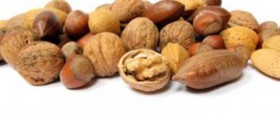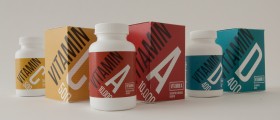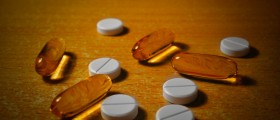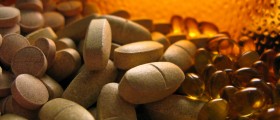
Health Benefits
Vitamin B Complex is a especially recommended to convalescents, pregnant women and alcoholics. It can be found in green leafy vegetables, liver, yeast, cereals and beer.Vitamin B complex includes:B-1 (thiamine), B-2 (riboflavin), B-3 (niacin)B-5 (pantothenic acid), B-6 (pyridoxine), B-9 (folic acid) and B-12 (Cyanocobalamin). Biotin, choline and Paraminobenzoic acid are also included in vitamin B complex, although they are not essential, except biotin for children. One of the main features of this vitamin complex is the solubility in water, and the origin in the brewer’s yeast.
Vitamin B1
Vitamin B1 is important for ensuring the process of glucose metabolism and carbohydrates flow. It is also valuable for heart muscle and respiratory tract functioning. Lack of this vitamin causes fatigue, nerve disorders, cardiovascular disorders, chills, fatigue and beriberi.The main sources of the thiamine are liver (especially lamb), kidneys, brewer’s yeast, sunflower seeds and rice.
Vitamin B2
Vitamin B2 is important for good vision, proper digestion, carbohydrates and protein flow and cell renewal. Lack of this vitamin causes eye sensitivity, inflammation of the lips and cornea, appearance of capillaries in the whites of the eyes, dermatitis and nails cracking.The main sources of vitamin B2 are yeast, cheese, milk, chicken liver, eggs, yogurt, rice and mushrooms.
Vitamin B3
Vitamin B3 is useful for proper processing of proteins, fats and carbohydrates, mental health, skin care and good digestion. Lack B3 causes skin disorders, pellagra, indigestion, poor memory and concentration, depression, dental diseases and breathing problems.The main sources of niacin are black bread, chicken liver and kidneys.
Vitamin B4
Vitamin B4 shows medical properties in the case of the lack of white blood cells.Vitamin B5
Vitamin B5 is needed for the preservation of a healthy nervous system, proper secretion of adrenaline, the oxidation of fatty acids and cholesterol. It is believed that vitamin B5 deficiency is the cause of premature gray hair and skin aging.The main sources of the pantothenic acid are beer, lamb liver, mushrooms, peanuts, egg yolk, kidney and cereals.
Vitamin B6
Vitamin B6 provides the proper metabolism, immune system and strong nervous system. Lack of B6 causes anxiety, depression, anemia, weakness, muscle atrophy, hemorrhoids and seborrhea.The main sources of pyridoxine are bananas, liver, yeast, milk, eggs, bread and cereals.
Vitamin B9
Vitamin B9 is important for the growth and the red blood cells production.The main sources of folic acid are brewer"s yeast, spinach and asparagus
Vitamin B12
Vitamin B12 is one of the most important factors for the formation of red blood cells. It is also important for the nervous and digestive system, and participates in the metabolism of fats. Lack of vitamin B12 causes severe anemia.The main sources of this vitamin are liver, kidneys, egg yolk, fish, and cow’s milk.
Choline-B complex affects the distribution of body fat and keeps the nervous system. It regulates the removal of fat from the liver. The lack of choline causes fat depositing in the liver and, if it is long-lasting, may lead to the liver cirrhosis. Also, it can lead to high blood pressure. The main sources of choline are meat, milk, eggs, chunky vegetables, yeast and wheat.
Inositol B-complex affects the health of the liver. Lack of inositol causes poor appetite and development of liver cirrhosis. The main sources of inositol are yeast, sesame seeds, walnuts, almonds and hazelnuts.
Paraminobenzoic acid affects the production of red blood cells and slows the appearance of grey hair. It can be found in cabbage, kale, rice and liver.

















Your thoughts on this
Loading...